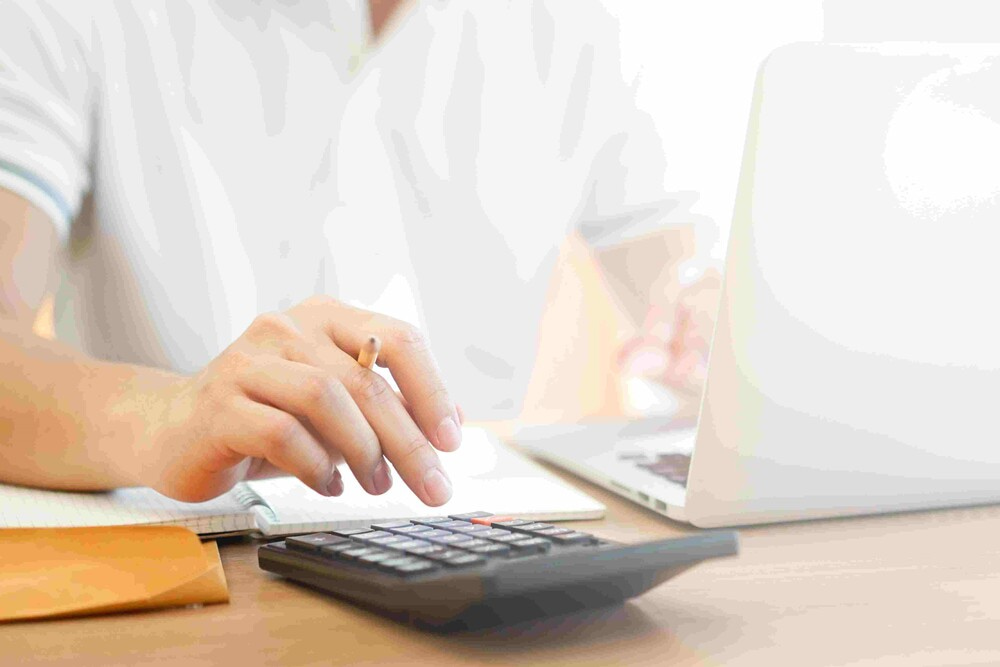Tax on the sale of a house: what you need to pay attention to
The amount of tax payable on the sale of a house depends on a number of factors. Below is
an overview of the amount of tax payable on the sale of a house, the important deadlines and the differences in tax treatment between owner-occupied and rented properties. Even if you cannot always freely influence these factors, it is worth taking advantage of the planning options available to minimise the tax due on the sale of your home.
What taxes apply to the sale of a house?
When you sell a property, the following taxes may apply:
- Land transfer tax – if not paid by the purchaser
- Sales tax due on notary fees
- If the speculation period is not respected when a rented property is sold, the profit
from the sale must be taxed. - If the sale takes place in a commercial context, business tax is payable.
- If you are selling a property for business purposes, you will also have to pay VAT.
Is there always tax to pay when selling a house?
In the case of a property used privately, there is no tax to pay when the house is sold. A
property is considered to be in private use if the vendor or a close relative has lived there for
the last two years. In this case, close relatives in the tax sense are the cohabiting partner or
spouse and children entitled to child benefit. However, the latter cannot pay rent for the use
of the house. If the property being sold is a new build that is less than two years old, the
vendor must have lived there without interruption since the house was completed. It is only
under these conditions that no tax is payable on the sale of a house.
Selling a rented house: saving tax
If you want to save tax when you sell a house that has been rented out, you must have
owned it for at least 10 years and one day. The 10 years refers to the speculation period,
which must be exceeded by at least one day.
The simplest case is that of a new build – in this case, the period starts to run from
completion of the work. If the property is an existing building, the period starts to run when
the contract of sale is signed. If you have inherited the house, the speculation period begins
to run on the day the deceased became the owner of the house. The way in which you can
save tax in the case of a rented house therefore varies from case to case./span>
Disposing of a property that forms part of the company's assets
Perhaps you don't want or need to sell a house, but a property that forms part of the
company's assets. If so, is there any tax to pay, and if so, what kind?
If a property forming part of the company's assets is sold, the proceeds of the sale must be
taxed. This applies to built or unbuilt property belonging to an agricultural or forestry
business or to a commercial enterprise.
When does a property sale become a commercial property transaction?
It is generally considered a commercial property transaction if you sell at least three
properties in the space of five years. Why is this interesting? If the sale of the property is
considered to be commercial, business tax and turnover tax must be paid on the profit from
the sale. The opposite of a commercial property transaction is private asset management.
The arguments in its favour are a period of ownership of more than ten years, the obligation
to sell a property, for example because of a divorce, and the sale of condominiums or
detached or semi-detached houses.
How to calculate tax on the sale of a house

The tax due on the sale of a property is calculated from
Profit on sale = selling price minus initial purchase price
From this sum you can deduct any advertising costs – for example, advertising or estate
agency fees.
Taxable profit = profit on sale less advertising costs
The tax payable on a property sale is based on this taxable profit and your personal tax rate.
Reducing tax on the sale of a house
There are a number of ways of reducing tax on the sale of a house:
- As far as possible, don't sell a home for private use for at least two years.
- Keep a rented property in your possession for at least 10 years.
- Reduce the sale value by selling items that are not part of the house separately.
- Check whether it makes sense for you to spread the proceeds of the sale by making
the buyer pay in several instalments – for example, by using the allowances several
times. - Can you defer the sale to a year when your total income, and therefore your personal
tax rate, is lower? It's also a way of reducing tax on the sale of a house.
Conclusion
If you pay attention to certain things, you can influence in your favour the tax due on the sale
of a house. For example, make sure that the sale of your home is regarded by the tax
authorities as a private asset management transaction and not as a commercial property
transaction. To this end, you may not sell more than two properties in the space of five
years. In addition, do not sell a house for private use for two years. Keep a rented house in
your possession for at least ten years. If you are in any doubt about tax when selling a
house, seek advice from a specialist tax adviser before the sale.








